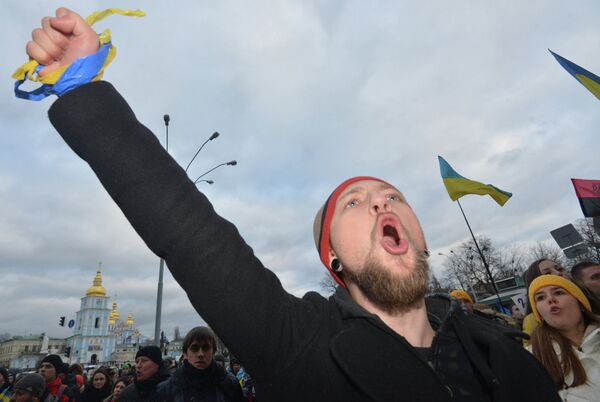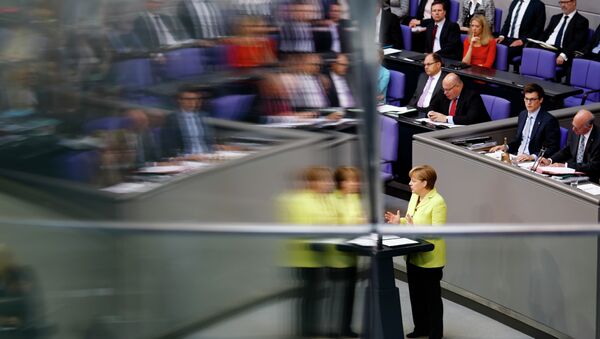German Chancellor Angela Merkel, UK's David Cameron and France's Francois Hollande are all due to attend the meeting in Riga, Latvia, on Thursday and Friday this week, but the talks are likely to be strained after Armenia and Belarus refused to agree to sign a statement calling Russia's annexation of Ukraine's Crimea peninsula illegal.
It is the first EU Eastern Partnership Summit since the one in 2013, during which Ukraine was on the brink of signing an Association Agreement with the European Union.

The right-wing, pro-western, US-funded coup that ensued saw Yanukovych flee the country and Petro Poroshenko seize power, fuelling more civil unrest in eastern Ukraine and Crimea's request for entry into the Russian Federation.
"These are not easy negotiations," one EU diplomat said after talks in Brussels on a draft text that will be reviewed in Latvia by EU foreign ministers on Thursday evening. Any success for the summit would depend, the diplomat added, on how the leaders would "spin" their modest, largely technical, areas of agreement — "and on how it will be read in Moscow."
EU Soft-Pedaling Over Trade Agreements
The statement to be agreed in Riga is due to note the EU's condemnation of the Crimean situation but also refer to partner governments' positions in a March 2014 UN vote in which Armenia and Belarus took Moscow's line.
Behind the scenes of the #RigaSummit: final preparations in the "Castle of Light". Read more: http://t.co/xG1fWWRQIu. pic.twitter.com/PRfmwH4bcP
— EU Council (@EUCouncil) May 21, 2015
Having courted its eastern neighbours and Ukraine, plunging Europe into the biggest crisis since the Cold War, the EU is now trying to soft-pedal its ambitions without turning its back on its impoverished partners and seeking a way out of a conflict with Russia that has cost thousands of lives and prompted mutual sanctions in an East-West trade war.
What are the main issues which will be discussed at the forthcoming #RigaSummit on the Eastern Partnership? http://t.co/s65F4iIu9c #EaP
— EU External Action (@eu_eeas) May 20, 2015
In Brussels on Tuesday, Russian Foreign Minister Sergei Lavrov said he would hold EU leaders to their pledges that the Eastern Partnership would not harm Russia's own interests in the "near abroad", where the 2008 Georgian war in South Ossetia also took place.
"Trying to present things as 'you're either with us or against us', as a zero-sum game, brings undesirable results," he said, adding he wanted to see action in Riga to reassure Moscow.


